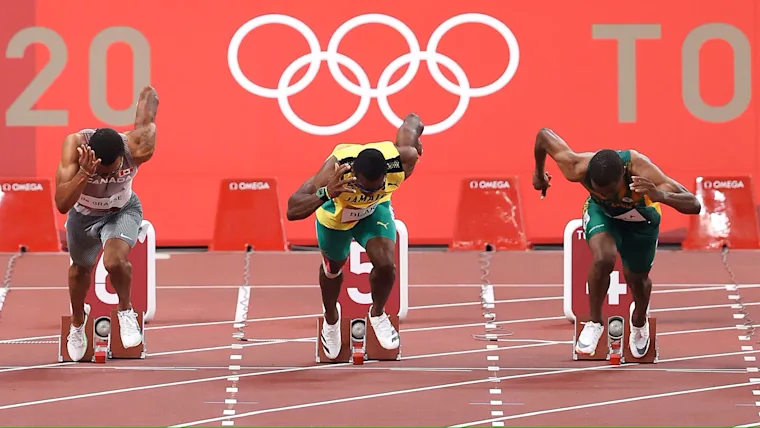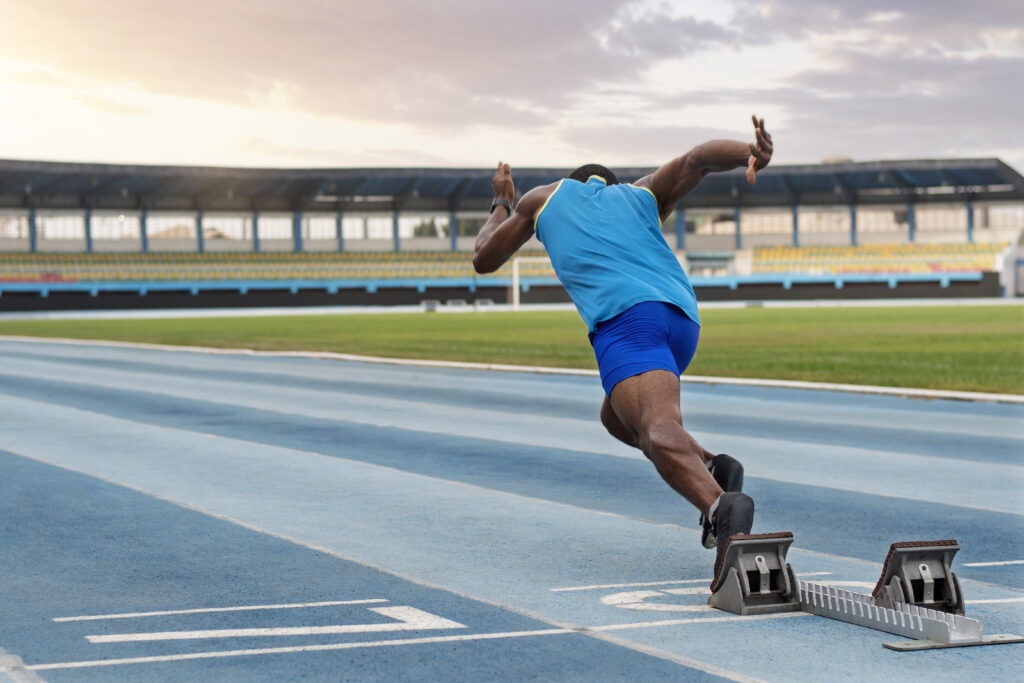The world of athletics is often glorified for its displays of physical prowess and peak human achievement. However, the relentless pursuit of victory can take a toll on an athlete’s mental well-being. Just like any other individual, athletes face unique pressures and challenges that can significantly impact their mental health and, consequently, their performance.
The Pressure Cooker of Athletics
Athletes, regardless of age or experience level, operate in a highly demanding environment that can feel like a pressure cooker. This relentless pursuit of athletic excellence exposes them to a multitude of stressors that can significantly impact their mental well-being. Let’s delve deeper into some key pressure points athletes face:
Performance Anxiety:
It is often the most readily recognized stressor. The fear of failing to meet expectations, both self-imposed and external (coaches, parents, fans), can be paralyzing. It can manifest in a variety of ways, including:
Pre-competition jitters: This anxious feeling is characterized by increased heart rate, sweating, and difficulty concentrating. It’s a normal physiological response, but it can hinder performance when excessive.
Negative self-talk: Athletes might engage in a constant internal monologue filled with self-doubt and criticism, which can erode confidence and lead to poor decision-making during competitions.
Somatic symptoms: Performance anxiety can manifest in physical ways such as nausea, headaches, or muscle tension, further hindering performance.
Burnout:
The relentless pressure to constantly train, compete, and recover can deplete an athlete’s emotional reserves. It leads to a state of burnout, characterized by:
Emotional exhaustion: Athletes may feel emotionally drained and lack the motivation to continue training or competing.
Cynicism: The joy and passion for the sport can fade, replaced by cynicism and a sense of detachment.
Reduced sense of accomplishment: Even achieving personal bests might feel insignificant, leading to a loss of satisfaction and purpose.
Body Image Issues:
Depending on the sport, athletes might feel immense pressure to maintain a specific physique. This pressure can be particularly intense in sports that emphasize aesthetics, such as gymnastics or figure skating. The pursuit of this “ideal” physique can lead to:
Disordered eating: Athletes might resort to unhealthy eating habits such as restrictive dieting, binge eating, or purging to achieve the desired weight or body composition.
Performance-enhancing drug use (PEDs): In extreme cases, athletes might resort to using PEDs in a dangerous attempt to alter their bodies and gain a competitive edge.
Muscle dysmorphia: This is a body image disorder where athletes become obsessed with perceived flaws in their physique, leading to excessive training and body checking.
Injury and Recovery:
Injuries are an inevitable part of athletics and they can be incredibly discouraging. The mental strain associated with injuries includes:
Loss of momentum: An injury can disrupt an athlete’s training and competition schedule, hindering their progress and potentially jeopardizing their goals.
Fear of reinjury: The fear of re-aggravating the injury can lead to hesitation and a lack of confidence during training and competition.
Pressure to return too soon: Athletes might feel pressure to rush their recovery to return to competition, which can worsen the injury and lead to long-term consequences.
Social Isolation:
The intense focus on training and competition can leave little time for social interaction. It can lead to feelings of:
Loneliness: Lack of social connection can be isolating and contribute to feelings of depression and anxiety.
Difficulty maintaining relationships: The demanding schedule can strain relationships with family and friends, leading to disconnection from their support system.
Strategies for Championing Mental Wellbeing

Fortunately, there’s an arsenal of effective strategies that athletes can utilize to fortify their mental well-being and optimize their performance. Here’s a deeper dive into these empowering tactics:
Develop Healthy Coping Mechanisms:
These are tools athletes can readily deploy to manage stress and anxiety in the face of pressure. Some effective techniques include:
Mindfulness meditation: This practice cultivates present-moment awareness, allowing athletes to detach from negative thoughts and anxieties. By focusing on their breath and bodily sensations, they can regulate their emotions and achieve a state of calm focus.
Deep breathing exercises: Controlled breathing techniques, such as diaphragmatic breathing, can activate the body’s relaxation response, lowering heart rate and reducing feelings of anxiety.
Progressive muscle relaxation: This technique involves progressively tensing and relaxing different muscle groups, promoting physical relaxation and reducing tension.
Seek Professional Help:
Just like consulting a physical therapist for an injury, athletes can benefit greatly from seeking professional help for their mental well-being. Here are some resources to consider:
Sports psychologists: These licensed professionals specialize in understanding the unique challenges faced by athletes. They can equip athletes with tools to manage emotions, build mental resilience, develop healthy coping mechanisms, and enhance performance.
Therapists: Therapists can provide a safe space for athletes to discuss their anxieties, develop coping strategies, and address any underlying mental health concerns.
Maintain a Balanced Lifestyle:
A healthy lifestyle is the foundation for both physical and mental well-being. Here are some key aspects to prioritize:
Adequate sleep: Sleep deprivation can exacerbate anxiety, impair focus, and hinder performance. Aim for 7-8 hours of quality sleep each night.
Nutritious meals: Fueling your body with nutritious foods provides the energy and nutrients needed for optimal physical and mental performance. Focus on a balanced diet that includes fruits, vegetables, whole grains, and lean protein.
Activities outside of athletics: Dedicate time for activities you enjoy outside of your sport. It can help reduce stress, prevent burnout, and foster a sense of well-being. Engage in hobbies, spend time with loved ones, or explore new interests.
Strength Through Support:
Building a strong support system is crucial for navigating the athletics challenges. Surround yourself with positive and encouraging individuals, such as:
Coaches: Supportive and understanding coaches can provide valuable guidance and encouragement. They can help athletes set realistic goals, celebrate successes (big and small), and navigate setbacks.
Teammates: Teammates can offer a sense of belonging, camaraderie, and shared experience. They can be a source of motivation, support, and understanding.
Friends and family: A strong network of friends and family provides a safe space to express emotions, receive encouragement, and maintain a healthy perspective outside of athletics.
Celebrate Small Victories:
Focusing solely on winning can create immense pressure and lead to disappointment. Shift your mindset to celebrate personal growth and improvement:
Set SMART goals: Specific, Measurable, Achievable, Relevant, and Time-bound goals provide a roadmap for progress. Celebrate achieving these milestones, big or small.
Focus on the process: Enjoy the journey of training and improvement. Celebrate mastering new skills, improving your performance indicators, and becoming a better athlete.
Acknowledge setbacks: View setbacks as learning opportunities. Analyze what went wrong, adjust your approach, and celebrate your resilience in overcoming the challenge.
The Winning Formula: Mental Fitness + Physical Prowess
The world of athletics has long emphasized physical prowess as the key ingredient for success. However, a growing body of research reveals a hidden champion in the pursuit of athletic excellence: mental health. By prioritizing mental well-being, athletes unlock a powerful synergy that elevates performance, reduces injury risk, and fosters a longer more fulfilling career. Let’s delve deeper into the winning formula created by this potent combination:
Enhanced Performance:
When athletes prioritize their mental health, they experience a multitude of benefits that translate directly into peak performance:
Improved Focus: Athletes with strong mental health are less susceptible to distractions and can maintain laser focus during training and competition. Their minds are clear and sharp, allowing them to execute skills and react quickly to changing situations.
Increased Confidence: A healthy mental state fosters a sense of self-belief and trust in one’s abilities. Confident athletes approach challenges with a positive attitude, are less likely to be discouraged by setbacks, and are more likely to push themselves to achieve their full potential.
Better Decision-Making Under Pressure: Competition inevitably brings pressure-filled situations. Athletes with strong mental fitness are better equipped to manage these moments effectively. They can think clearly under pressure, make sound decisions strategically, and adapt their approach based on the situation.
Reduced Risk of Injury:
The mind-body connection plays a crucial role in injury prevention:
Improved Sleep Quality: Mental well-being promotes better sleep, which allows the body to recover more effectively and reduces fatigue. Adequate sleep also enhances focus and reaction time, potentially reducing the risk of mistakes that can lead to injuries.
Enhanced Body Awareness: Athletes with strong mental health are more attuned to their bodies’ signals. They can recognize early signs of fatigue, muscle strain, or potential injury, allowing them to adjust their training intensity or seek professional help before a minor issue escalates into a setback.
Improved Technique: Strong mental focus allows athletes to practice and refine their techniques with greater precision. It not only improves performance but also reduces the risk of injuries caused by improper form or technique flaws.
Long-Term Success:
Taking care of mental health is an investment in an athlete’s long-term athletic journey:
Increased Enjoyment: When mental well-being is prioritized, the focus shifts from just winning to enjoying the process of training and competing. This intrinsic motivation fosters a more sustainable and fulfilling athletic career.
Resilience in the Face of Setbacks: Injuries, losses, and setbacks are inevitable parts of athletics. Athletes who prioritize mental health are better equipped to cope with these challenges. They can bounce back from adversity with greater resilience, maintain a positive outlook, and learn from their experiences.
Prevention of Burnout: The relentless pursuit of excellence can lead to burnout. By prioritizing mental well-being athletes can maintain a healthy balance, prevent burnout, and extend their competitive lifespan.
Breaking the Stigma: It’s Okay to Not Be Okay
For too long, mental health struggles within the athletic community have been shrouded in stigma. Athletes who seek help are not weak; they are demonstrating the strength and self-awareness necessary to succeed.
Conclusion
Mental health is an integral part of athletic performance. By acknowledging the unique pressures faced by athletes, promoting open conversations about mental well-being, and providing accessible resources, we can empower athletes to achieve peak performance – both on and off the field. Remember, a healthy mind is the foundation for a successful and fulfilling athletic career.


